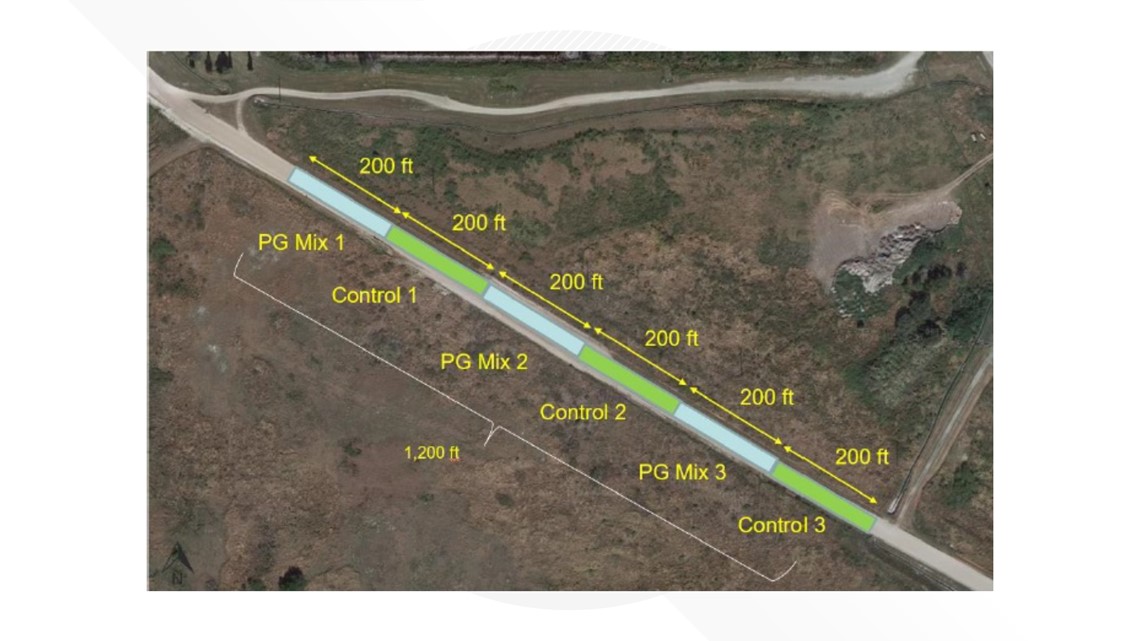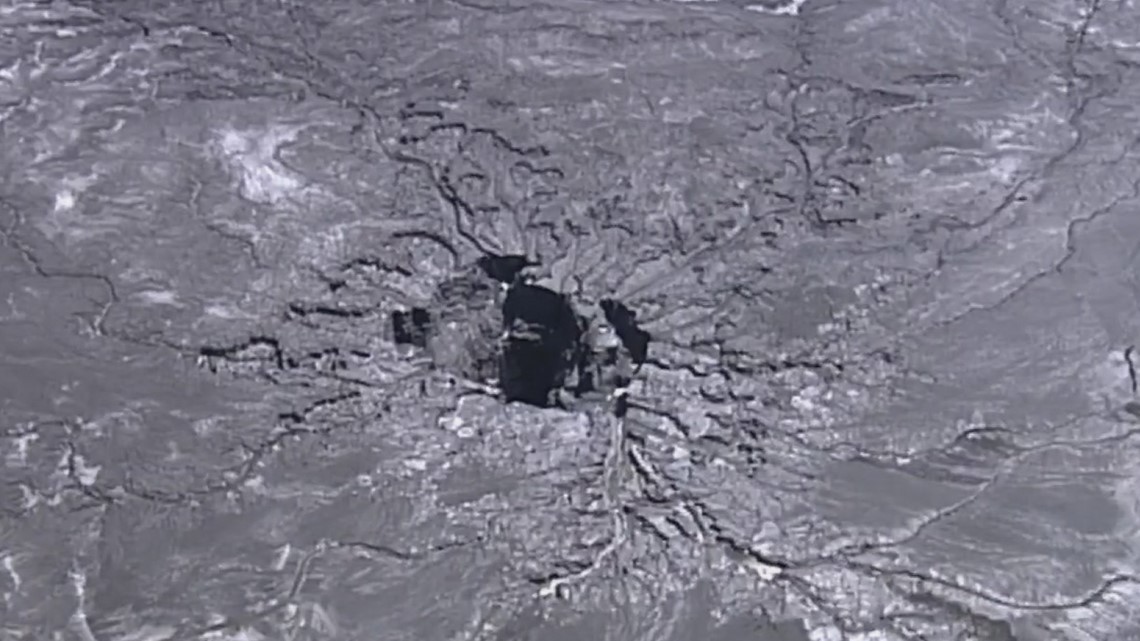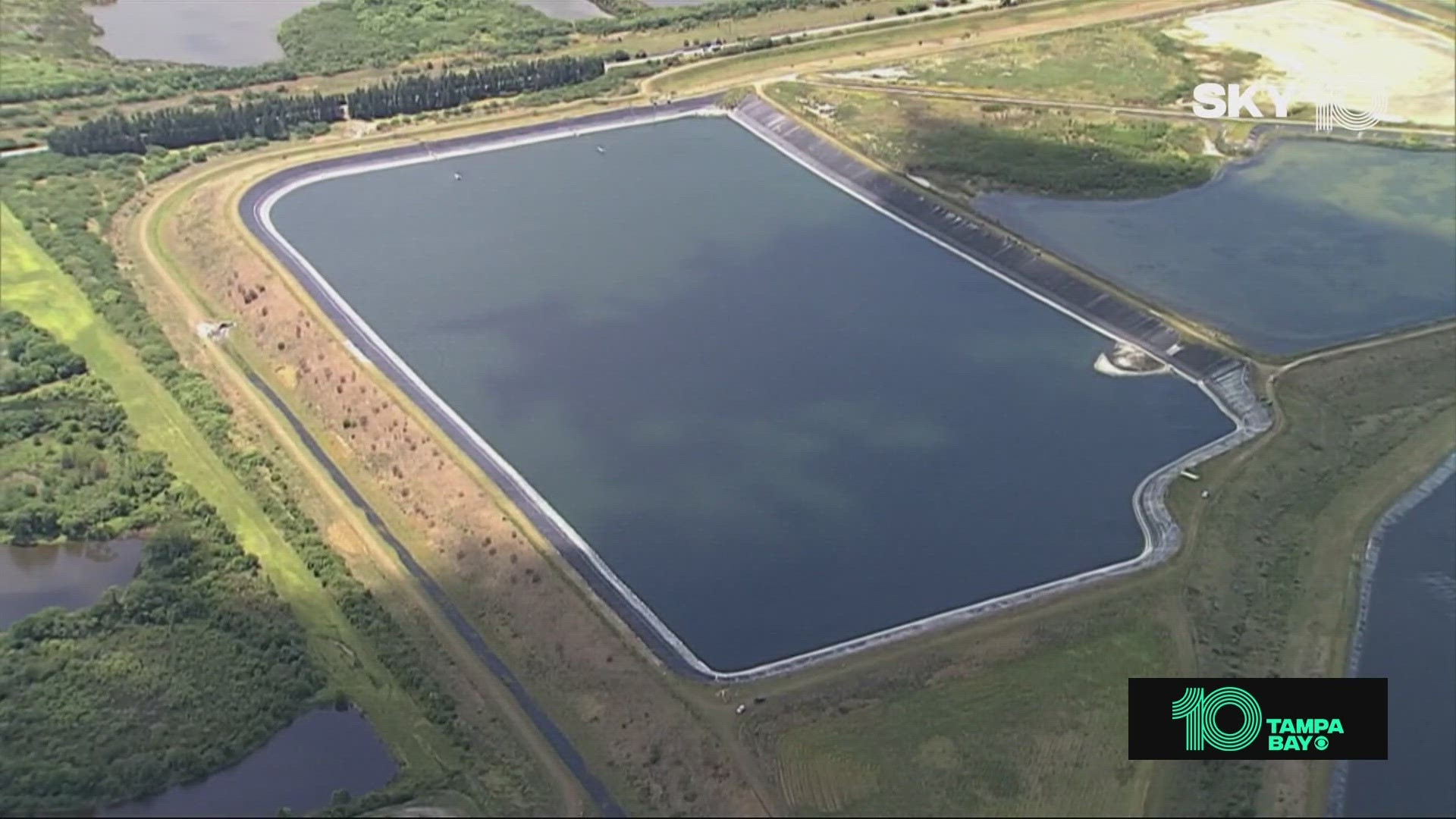TAMPA, Fla. — It appears no steps have been taken to begin testing whether slightly radioactive waste from fertilizer production can be repurposed for Florida road construction projects.
Gov. Ron DeSantis in June signed a law directing Florida’s Department of Transportation to study phosphogypsum — the byproduct from the state’s booming fertilizer industry — as a viable ingredient in road construction.
It would need approval first from the U.S. Environmental Protection Agency and must be completed by April 1, 2024.
But FDOT has yet to submit an application to the federal agency.
“While the bill allows FDOT to use phosphogypsum for demonstration projects, there are currently no projects using phosphogypsum being considered at this time,” a spokesperson told 10 Tampa Bay.
The lack of movement comes as dozens of local and state leaders are calling on federal regulators to deny Tampa-based fertilizer giant Mosaic’s attempts to conduct its own road construction study.
A coalition of state legislators, local mayors, commissioners and councilmembers recently sent a letter to the EPA, which is currently considering the company’s request to build a 1,200-foot-long road at its New Wales facility paved with phosphogypsum as an ingredient.


“We will not accept radioactive waste in roadbeds which places our constituents, schools, waterways and communities in harm’s way,” the letter reads.
Critics have been sounding the alarm on the risks they say the proposal poses to health and the environment. But Mosaic and supporters see it as the answer to the question of what to do with the waste byproduct stored across the state, mostly in Hillsborough, Polk and Manatee counties.
Currently, the EPA requires phosphogypsum to be stored in ”stacks” that resemble enormous ponds. Florida has 24, totaling about 1 billion tons of phosphogypsum, with 30 million new tons generated every year through the phosphate fertilizer mining industry.


The stacks are susceptible to tears, leaks or worse. A leak at the Piney Point stack in 2021 resulted in the release of an estimated 215 million gallons of polluted water into Tampa Bay, causing massive fish kills. In 2016, a massive sinkhole opened up under a stack at Mosaic’s New Wales facility allowing more than 200 million gallons of contaminated water to seep into Florida’s aquifer.
“There are better ways to use this material, and at the same time remove gyp stacks from our landscape,” said Mosaic spokesperson Jackie Barron. “We want to move away from stacking like countries around the world have been doing for years.”
The EPA regulates phosphogypsum because the material contains radium-226, a naturally occurring radioactive substance that produces radon gas, which is a hazardous air pollutant. Its use has been banned in road construction since 1992 – only briefly allowed in 2020 in government road construction projects.
Rep. Lawrence McClure, R-Dover, sponsored the bill directing the state to study its use. He argues that science has advanced in the past three decades.
“Florida State University has a robust phosphogypsum program studying how to strip that contaminant from the material--they're not quite there yet but I think they're getting pretty close,” McClure said. “Other countries that we respect for their environmental stewardship, such as Japan and Australia have found a way to use this in a manner that isn't contaminating the environment.”
But conservation groups argue there are safer alternatives with less uncertainty.
“One country's intent to straddle its citizens with environmental consequences is not an excuse for our country to do the same,” said Ragan Whitlock with the Center for Biological Diversity.
His organization and others urged DeSantis to veto the bill. Whitlock believes it’s a study with a foregone conclusion.
“The Florida Department of Transportation is not in a position to make a finding on the health and safety consequences of this product,” he said. “It should tell you all you need to know about the intended consequences of this study by these legislators.”
Whitlock and others argue the phosphate industry is attempting to profit from the very waste it's creating.
“In terms of creating some sort of additional profit producer for us that is 100 percent wrong,” Barron told 10 Tampa Bay, saying the sole focus of the effort is to stop stacking phosphogypsum.
“The use of phosphogypsum in road construction is not a solution to our gyp stack systems,” Whitlock said. “Whatever amount is used in road construction will only be a drop in that massive well.”

